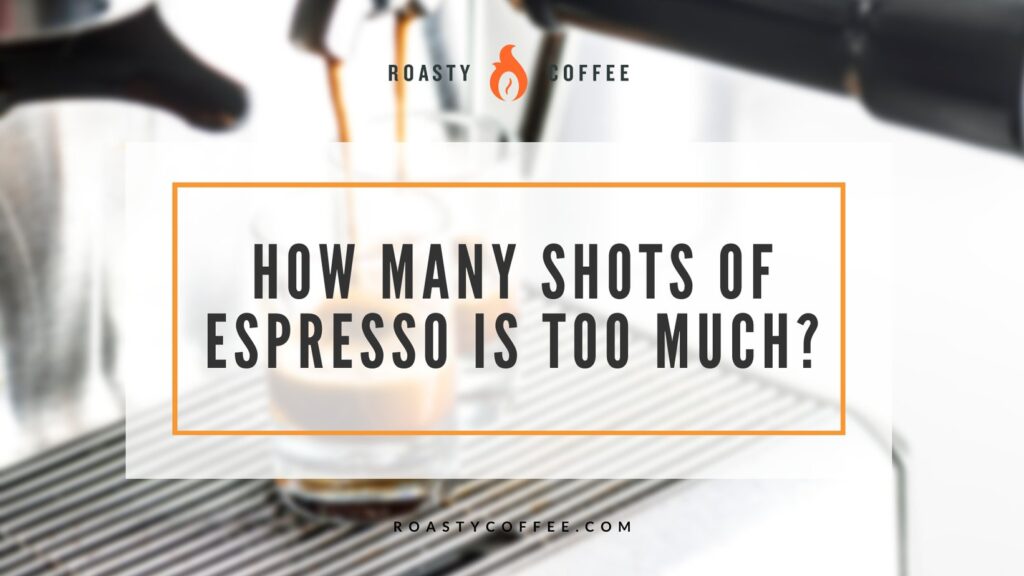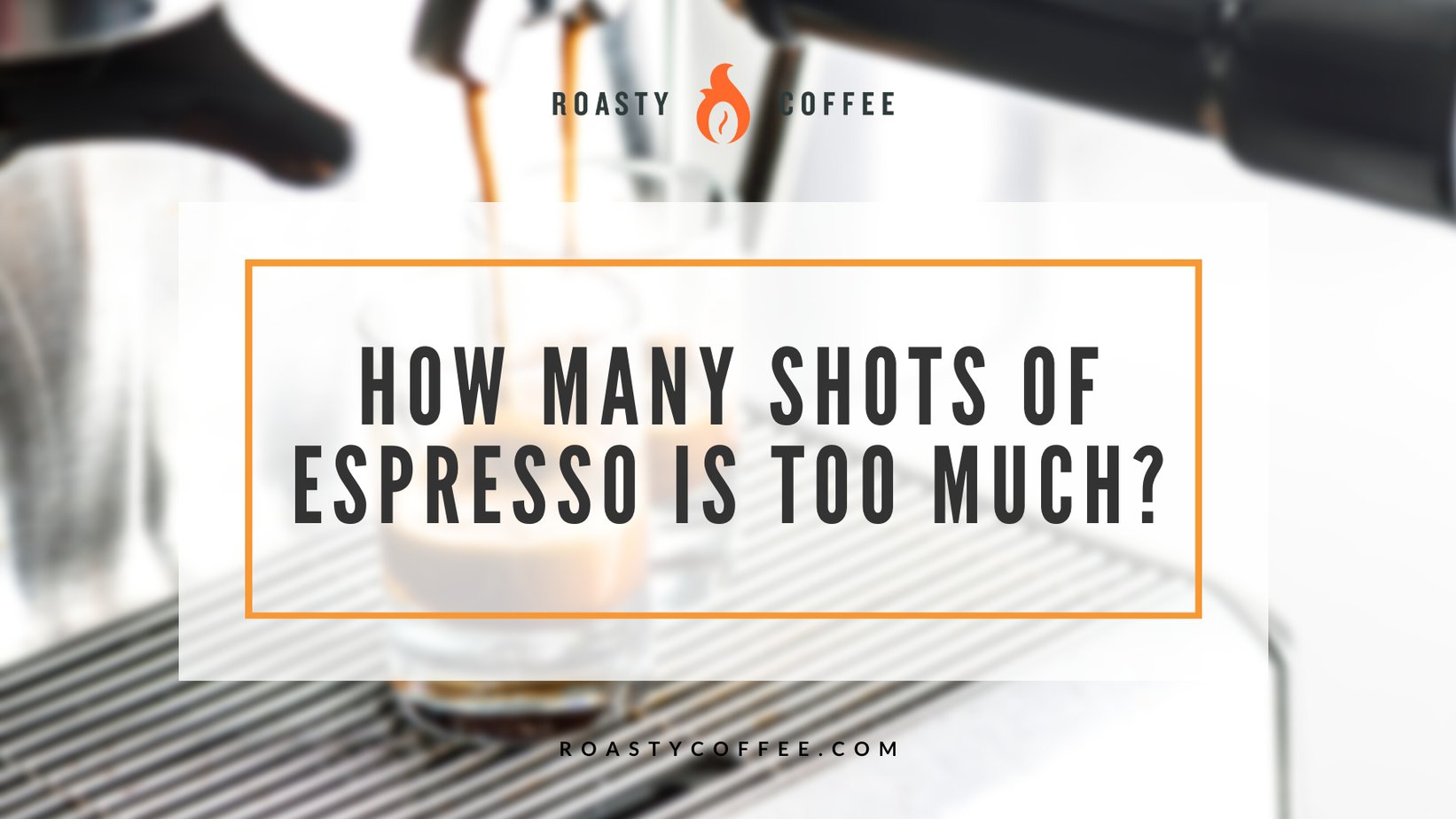
Is 6 Shots of Espresso Too Much? Weighing the Risks and Benefits
The aroma of freshly brewed coffee, the jolt of energy, the focused concentration – for many, these are the hallmarks of a productive day. Espresso, with its concentrated caffeine punch, has become a cornerstone of modern culture. But in a world where convenience reigns, and larger-than-life lattes are commonplace, the question arises: is 6 shots of espresso too much? This article delves into the science, the potential dangers, and the practical considerations of consuming such a high dose of caffeine.
Understanding Espresso and Caffeine
Before we can answer the question, we need to understand the basics. Espresso is a coffee brewing method where hot water is forced through finely-ground coffee beans. This process creates a concentrated coffee drink, typically served in small shots. The caffeine content in an espresso shot can vary depending on factors such as the bean type, roast level, and brewing method. However, a general estimate places a single shot of espresso at around 60-75 milligrams of caffeine. Therefore, 6 shots of espresso could potentially contain between 360 and 450 milligrams of caffeine.
The Effects of Caffeine on the Body
Caffeine is a stimulant that affects the central nervous system. It works by blocking adenosine, a neurotransmitter that promotes relaxation and sleepiness. This blockage leads to increased alertness, reduced fatigue, and improved focus. However, caffeine also has other effects on the body, including:
- Increased heart rate and blood pressure
- Release of adrenaline
- Stimulation of the digestive system
The effects of caffeine are dose-dependent. A small amount of caffeine might provide a mild boost, while a large amount can lead to more significant side effects.
Potential Benefits of Caffeine Consumption
In moderation, caffeine can offer several benefits. Studies have shown that caffeine can enhance cognitive function, improve physical performance, and even protect against certain diseases. The potential benefits include:
- Improved cognitive function: Caffeine can enhance alertness, focus, and memory.
- Enhanced physical performance: Caffeine can improve endurance and reduce perceived exertion during exercise.
- Potential health benefits: Some studies suggest that caffeine may be associated with a reduced risk of Parkinson’s disease, Alzheimer’s disease, and type 2 diabetes.
However, these benefits are generally associated with moderate caffeine consumption, not the high levels found in 6 shots of espresso.
The Risks of Excessive Caffeine Intake: Is 6 Shots of Espresso Too Much?
Consuming 6 shots of espresso is a significant dose of caffeine, and it carries several potential risks. The side effects of excessive caffeine intake can range from mild to severe, and include:
- Anxiety and nervousness: High doses of caffeine can trigger anxiety and panic attacks in susceptible individuals.
- Insomnia: Caffeine can interfere with sleep, making it difficult to fall asleep or stay asleep.
- Digestive issues: Caffeine can stimulate the digestive system, leading to heartburn, diarrhea, and other gastrointestinal problems.
- Rapid heart rate and palpitations: Excessive caffeine can increase heart rate and cause irregular heartbeats.
- Headaches: Caffeine withdrawal can cause headaches, and excessive caffeine consumption can also trigger them.
- Addiction and withdrawal: Regular caffeine consumption can lead to dependence, and withdrawal symptoms can include headaches, fatigue, and irritability.
The severity of these side effects depends on individual factors such as caffeine sensitivity, metabolism, and overall health. However, consuming 6 shots of espresso daily significantly increases the likelihood of experiencing these adverse effects. Therefore, the answer to the question, “is 6 shots of espresso too much?” is likely yes for most people.
Individual Factors to Consider
The impact of 6 shots of espresso on an individual will vary based on several factors. Some people are more sensitive to caffeine than others. Their ability to metabolize caffeine, influenced by genetics and other factors, will determine how their body processes the caffeine. Other factors include:
- Body weight: Smaller individuals may experience stronger effects from the same amount of caffeine.
- Tolerance: Regular caffeine consumers may develop a tolerance, requiring higher doses to achieve the same effects. However, tolerance doesn’t eliminate the risks.
- Medications: Certain medications can interact with caffeine, amplifying its effects or causing adverse reactions.
- Underlying health conditions: Individuals with heart conditions, anxiety disorders, or other health issues may be more susceptible to the negative effects of caffeine.
Caffeine Guidelines and Recommendations
Health organizations generally recommend that healthy adults limit their caffeine intake to 400 milligrams per day. This is roughly equivalent to four cups of brewed coffee, or potentially 5-6 shots of espresso, depending on the strength. However, this is a general guideline, and individual tolerance and sensitivity can vary. The question, “is 6 shots of espresso too much?” still depends on the individual, but exceeding the recommended daily limit increases the risk.
Pregnant women, breastfeeding women, and individuals with certain health conditions are often advised to consume even less caffeine or avoid it altogether. It’s always best to consult with a healthcare professional to determine the appropriate caffeine intake for your individual needs.
Alternatives to High-Caffeine Beverages
If you’re looking to reduce your caffeine intake, there are several alternatives to consider. These include:
- Decaffeinated coffee: Provides the taste and ritual of coffee without the caffeine.
- Herbal teas: Offer a wide variety of flavors and health benefits without caffeine.
- Green tea: Contains a moderate amount of caffeine, along with antioxidants.
- Water: Staying hydrated can improve energy levels and focus.
- Healthy snacks: Eating protein-rich snacks can help stabilize energy levels.
Finding healthy alternatives can help reduce your caffeine intake and the potential risks associated with consuming a high dose of caffeine, like that found in 6 shots of espresso.
The Bottom Line: Is 6 Shots of Espresso Too Much?
So, is 6 shots of espresso too much? The answer is nuanced. While a healthy adult might tolerate this amount of caffeine without immediate serious consequences, it’s generally not recommended. The potential risks, including anxiety, insomnia, and cardiovascular issues, outweigh the benefits for most people. Consuming 6 shots of espresso daily places you at the higher end of the caffeine spectrum, increasing the likelihood of experiencing adverse effects. It’s important to listen to your body, be mindful of your caffeine intake, and consult with a healthcare professional if you have any concerns. Moderation and awareness are key. Consider whether the short-term benefits of 6 shots of espresso are worth the potential long-term health risks. The best approach is to understand your body’s response to caffeine and adjust your consumption accordingly. If you’re experiencing negative side effects, it’s a clear indication that you should reduce your intake. The question of “is 6 shots of espresso too much?” should be answered based on your individual health and tolerance levels.
[See also: Related Article Titles]
In conclusion, while a daily intake of 6 shots of espresso might not be immediately life-threatening for all individuals, it’s a high dose of caffeine that can lead to a variety of negative health effects. Prioritizing your well-being by carefully monitoring your caffeine consumption and considering alternative options is a prudent approach. The best strategy is to listen to your body, understand your limits, and make informed decisions about your caffeine intake to ensure you maintain optimal health and well-being. The answer to the question, “is 6 shots of espresso too much?” depends on your personal circumstances, but in most cases, the answer is likely yes.


